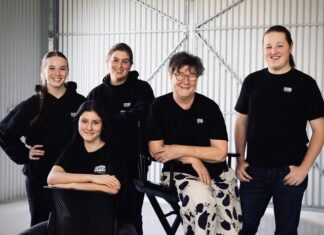KERRI-LYNN PEACHEY is the Farm Safety Research Manager at AgHealth Australia, part of The University of Sydney’s School of Rural Health and, while she’s happy to see the number of on-farm deaths trending in the right direction, she knows there is still much work to be done to protect those working in Australian agriculture. She delves into the issue…
Since 2001, 1742 individuals have tragically lost their lives due to non-intentional incidents on farms in Australia, with 32 deaths reported in 2023 alone.
This figure, though declining, serves as a stern reminder of the inherent risks faced by agricultural workers on a daily basis.
AgHealth Australia’s 2023 Non-intentional farm-related incidents in Australia report plays a pivotal role in understanding and presenting farm-related injuries and fatalities. By leveraging this data, we can work together to create safer and healthier work environments for farmers, workers and visitors.
Although the 2023 results are somewhat positive, with farm-related fatalities having halved since 2018, we still need to be cautious, as we are missing clear evidence to support the decrease. But while there is no definitive factor for the reduction, research and development efforts focusing on safety concerns, regulations and enforcement, economic incentives, awareness campaigns, training, education and a cultural shift have all played an important role.
Quad-bikes and tractors leading causes of farm-related deaths
Quad-bikes and tractors continue to be the leading causes of farm-related deaths in Australia. With regard to injuries alone, quad bikes are the leading cause by a significant margin, followed by horses, cattle, motorbikes and tractors. These five agents alone accounted for 72 per cent of all incidents reported in 2023.
To address the dangers or risks posed by quad-bikes and tractors, targeted safety programs and evidence-based solutions are necessary. These include fitting older quad-bikes with operator protection devices (OPDs), promoting helmet use and implementing rollover protection structures (ROPS) on tractors.
Seatbelt use is also crucial in preventing injuries on farms, serving as a vital safety measure against potential consequences.
In addition to physical safety measures, education and training are also essential components of any farm safety strategy. By providing workers with the knowledge and skills they need to identify and mitigate risks, we can empower them to protect themselves and their colleagues from harm.
While progress has been made, continued investment in research, education and advocacy is essential to identify and address emerging risks in the agriculture sector.
Farm safety is not just a matter of statistics
Farm safety is about protecting the lives and livelihoods of those who work tirelessly to put food on our tables. Despite the progress made in recent years, there is still work to be done to ensure that every farmer returns home safely at the end of the day.
Of course, safety is not just the responsibility of individual workers; it requires a coordinated effort from all stakeholders in the agriculture industry, including farmers, industry organisations, government agencies and the wider community.
By working together, we can create a culture of safety that prioritises the wellbeing of agricultural workers and reduces the risk of accidents on farms.
Whether through research, education or advocacy, there is a role for everyone to play to ensure farming remains a safe and sustainable profession for generations to come.









